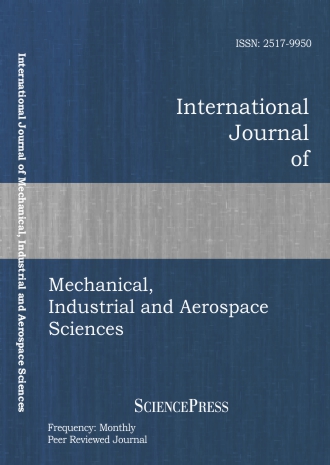
Scholarly
Volume:7, Issue: 3, 2013 Page No: 401 - 406
International Journal of Mechanical, Industrial and Aerospace Sciences
ISSN: 2517-9950
3056 Downloads
Improving Injection Moulding Processes Using Experimental Design
Moulded parts contribute to more than 70% of components in products. However, common defects particularly in plastic injection moulding exist such as: warpage, shrinkage, sink marks, and weld lines. In this paper Taguchi experimental design methods are applied to reduce the warpage defect of thin plate Acrylonitrile Butadiene Styrene (ABS) and are demonstrated in two levels; namely, orthogonal arrays of Taguchi and the Analysis of Variance (ANOVA). Eight trials have been run in which the optimal parameters that can minimize the warpage defect in factorial experiment are obtained. The results obtained from ANOVA approach analysis with respect to those derived from MINITAB illustrate the most significant factors which may cause warpage in injection moulding process. Moreover, ANOVA approach in comparison with other approaches like S/N ratio is more accurate and with the interaction of factors it is possible to achieve higher and the better outcomes.
References:
[1] Precision Die Casting Expert From Taiwan - Accucision Diecast , Japan